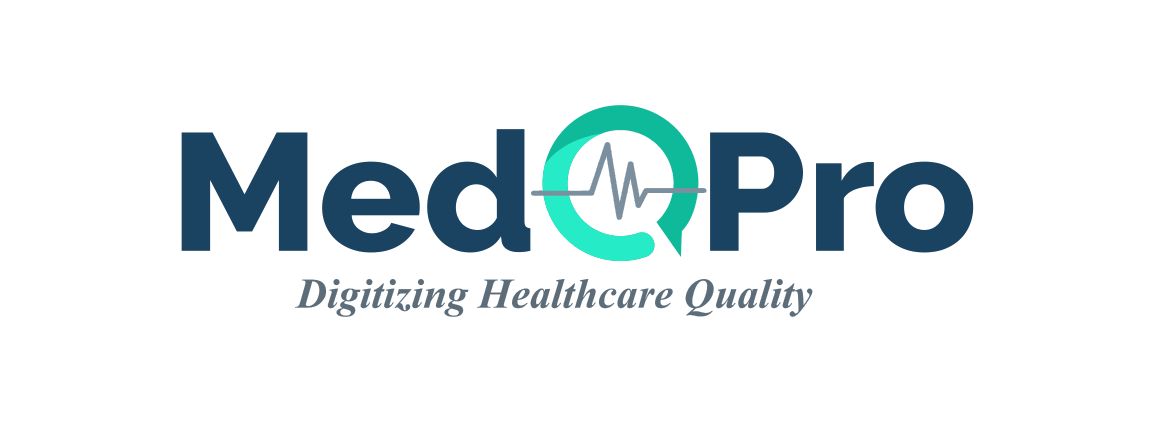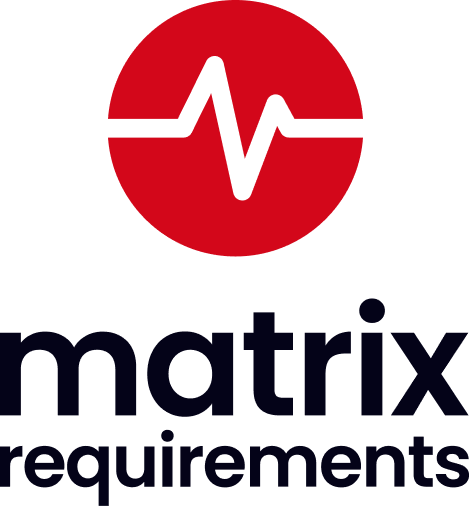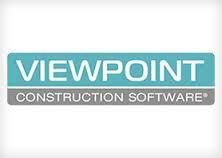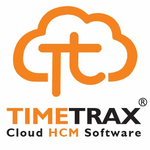Yes, quality management software may be accessible from various devices and platforms. As firms become more global and workers work remotely, software must be interoperable with a variety of devices and platforms. Quality management software is designed to be compatible with desktop computers, laptops, tablets, and smartphones, allowing users to access and control their quality processes from anywhere. It is also compatible with a variety of operating systems, including Windows, Mac, and Linux, providing users with cross-platform versatility.
List of 20 Best Quality Management Software
AmpleLogic Electronic Logbook is a software solution for managing all aspects of equipment usage. From calibrations and maintenance logs to cleaning tasks and other crucial details, this user-friendly application takes the hassle out of record keepin...Read More AmpleLogic Electronic Logbook
Cetec ERP is a SaaS platform that is transforming businesses worldwide. Say goodbye to expensive and outdated solutions with our cost-effective and user-friendly software. Finally, experience the benefits of digital transformation in your operations,...Read More Cetec ERP
MedQpro is a QMS software for hospitals in India, designed to meet the stringent standards of JCI and NABH. Our innovative solution aims to modernize the accreditation process by providing a comprehensive digital platform. With MedQpro, you can bid f...Read More MedQpro
Trello is a versatile project management solution designed to simplify and prioritize tasks. It streamlines project workflows, reducing the need for unnecessary meetings. Stay updated and easily share project information with team members on the plat...Read More Trello
MatrixQMS solution for lean and agile quality management. Boost the quality and compliance of your medical devices with our integrated QMS that combines engineering and quality processes. Enhance innovation with streamlined document control, training...Read More MatrixQMS
MeazureUp – the comprehensive solution for managing field audits and inspections. Our user-friendly app ensures consistency and compliance across all locations, while simplified reporting and performance tracking empowers data-driven decision...Read More MeazureUp
Say hello to Help Scout is a web-based help desk solution for exceptional customer support. With its intuitive interface, you can create multiple mailboxes and streamline collaboration across different departments or products. Say goodbye to complex...Read More Help Scout
Reimagine your construction process with Viewpoint is a software for project management. Simplify your workflows, enhance communication and reduce risk with our powerful collaborative solution. Enjoy a more efficient and organized construction experi...Read More Viewpoint
TestRail is a automation tool that simplifies testing for your team. Its user-friendly interface allows you to effortlessly create, organize, and run test cases. Monitor testing progress in real-time and seamlessly integrate with test automation and...Read More TestRail
Sis Trade is a software that offers cutting-edge solutions for the packaging industry. We specialize in corrugated cardboard, cardboard boxes, and other common applications in this sector. With our state-of-the-art technology, we stay ahead of the ga...Read More Sis Trade
Smart CAPA - a leading software solution designed to effectively manage and resolve complaints, holds, and deviations. With its efficient root cause analysis process, it helps your organization create corrective and preventive action plans for succes...Read More Smart CAPA
GlobalVision: the industry-leading proofreading and quality inspection software for regulated businesses. Enhance the precision and compliance of your labeling, packaging, and promotional materials with streamlined review processes. With our groundbr...Read More GlobalVision
Enterprise Gateway is tool that enables smooth communication and integration between manufacturing processes and enterprise functions. This comprehensive solution bridges the gap between Manufacturing Execution Systems and Enterprise Resource Plannin...Read More Enterprise Gateway
Tricentis Tosca is testing tool that utilizes cutting-edge AI technology to streamline the testing process. Its user-friendly codeless interface caters to both technical and non-technical users, making it accessible for all teams. This comprehensive...Read More Tricentis Tosca
BPA Quality - a software designed to streamline quality management processes and enhance overall efficiency. Its user-friendly interface and seamless integration with Microsoft 365 make it an essential tool for modern businesses seeking to stand out...Read More BPA Quality
BlueCherry is the ideal ERP platform for Agencies and Enterprises, with a comprehensive suite of tools tailored for Mac users. Manage catalogs, suppliers, requirements, billing, invoicing, and product data seamlessly from one centralized location. En...Read More BlueCherry
TimeTrax, your all-in-one solution for HRMS, ERP, and CRM needs. With 37 comprehensive modules, streamline your business operations and enhance productivity. Simplify human capital management and gain easy mobile access for efficient management on-th...Read More TimeTrax
Crowdin, the premier cloud-based solution for localization management. Used by renowned companies like Avast, Huawei, and Xiaomi, Crowdin offers a user-friendly Online Translation Editor for skilled linguists to effortlessly translate and proofread t...Read More Crowdin
AmpleLogic Calibration Management software is an efficient solution for managing your calibration and preventive maintenance processes. It allows you to plan, schedule, and track calibration activities in compliance with FDA, MHRA, and ISO standards...Read More AmpleLogic Calibration Management
Mind QA is a quality assurance software by Omind Technologies. Designed specifically for contact centers, our cutting-edge solutions are tailored to meet the customer support requirements of businesses, guaranteeing maximum satisfaction. As your trus...Read More Mind QA
Learn More About Quality Management Software
- What Is Quality Management Software?
- What Are The Recent Trends In Quality Management Software?
- Benefits Of Using Quality Management Software
- Important Factors To Consider While Purchasing Quality Management Software?
- What Are The Key Features To Look For In Quality Management Software?
- Why Do Businesses Need Quality Management Software?
- How Much Time Is Required To Implement Quality Management Software?
- What Is The Level Of Customization Available In Quality Management Software?
- Which Industries Can Benefit The Most From Quality Management Software?
- Conclusion
What Is Quality Management Software?
Quality Management Software (QMS) is a type of software that streamlines and automates the quality management operations. It is a comprehensive system that helps firms identify, monitor, and enhance the quality of their products or services. QMS serves as a focal hub for all quality-related activities, equipping businesses with the tools and strategies needed to achieve consistent and high-quality outputs.
The primary goal of a quality management system is to assist organizations in adhering to quality standards and regulations, such as ISO 9001, which are critical for preserving customer happiness and business success. It provides a number of tools and functionalities for managing various quality processes, such as document control, audit management, corrective and preventive measures, training management, and risk assessment.
One of the primary benefits of employing QMS is the ability to track and trace products throughout the whole manufacturing process. This aids in the identification of potential flaws or difficulties and the timely implementation of corrective actions, hence reducing the likelihood of product recalls or consumer complaints. Furthermore, QMS allows businesses to collect and evaluate data about their quality performance, which can be utilized to make educated decisions and drive continuous improvement projects.
It also enables real-time collaboration and communication among team members, ensuring that everyone is on the same page and working toward common quality objectives. When contemplating acquiring a QMS, seek for a user-friendly and configurable system that meets your specific business requirements. Choose a vendor with a solid track record in the QMS market and excellent customer service to enable a smooth setup and use of the software.
Investing in a trustworthy QMS can provide considerable benefits to your firm, such as enhanced productivity, fewer risks, improved customer satisfaction, and, ultimately, a boost to your bottom line. So, if you want to take your quality management to the next level, QMS is an essential tool for your organization.
What Are The Recent Trends In Quality Management Software?
Quality management software is continually improving to meet the changing needs of businesses across multiple industries. In recent years, numerous significant developments have evolved in the quality management software market.
These patterns not only reflect the direction of this software category, but also provide useful information for potential customers.
1. Cloud-Based Solutions: One of the most significant trends in quality management software is the rising use of cloud-based solutions. This technology enables users to access software from anywhere, at any time, making it more convenient and efficient. It also eliminates the need for expensive hardware and IT staff, making it a more cost-effective solution for enterprises.
2. Integration With Other Systems: Another rising trend in quality management software is the emphasis on integration with other systems like ERP, CRM, and supply chain management. This integration enables the seamless movement of data and information between various departments and systems, resulting in improved collaboration and efficiency.
3. Applications Of Artificial Intelligence: The application of artificial intelligence (AI) in quality management software is also gaining popularity. Businesses can use AI-powered systems to examine massive volumes of data and uncover trends that humans may miss. This not only increases the precision of quality control but also aids in data-driven decision-making.
4. Mobile Compatibility: With the growing popularity of mobile devices, quality management software is being created to be compatible with smartphones and tablets. Users may now access and manage quality data on the move, allowing for real-time monitoring and faster decision-making.
5. Focus On User Experience: User experience has been an important consideration in the creation of quality management software. Vendors are working on developing user-friendly interfaces and intuitive workflows to improve the entire experience of their software. This ensures that firms can simply teach their personnel to utilize the software, resulting in a more efficient implementation process.
6. Move Towards Predictive: Quality Traditionally, quality management has been a reactive process, identifying problems after they arise. However, as technology advances, there is a shift toward predictive quality, in which software anticipates possible quality issues and offers proactive solutions. This enables firms to prevent problems before they arise, resulting in higher product quality and lower costs.
Benefits Of Using Quality Management Software
Quality Management Software (QMS) is an effective tool for ensuring that organizations' products and services continuously meet or exceed customer expectations. It is intended to centralize and streamline quality processes, increase operational efficiency, and promote continuous improvement.
Let's explore, we will look at the advantages of utilizing Quality Management Software and why it is a necessary investment for every firm.
1. Improves Product And Service Quality: One of the most significant advantages of adopting Quality Management Software is its capacity to improve the quality of products and services. Businesses use QMS to maintain process consistency, identify and remove faults, and comply with industry standards and regulations. This, in turn, leads to higher product and service quality, which increases customer happiness and loyalty.
2. Improves Operational Efficiency: QMS allows firms to streamline their quality processes, including document control, change management, audits, and corrective actions. It reduces the need for manual, paper-based operations, which lowers the likelihood of errors and delays. QMS also provides real-time visibility into quality data, enabling firms to discover bottlenecks and areas for improvement, resulting in increased overall operational efficiency.
3. Promotes Compliance: In today's highly regulated business environment, compliance is critical. QMS helps firms comply with industry standards, legislation, and quality management frameworks like ISO 9001. It enables firms to manage and document compliance needs while also providing automatic alerts and notifications for noncompliant regions.
4. Facilitates Risk Management: QMS allows firms to proactively identify and reduce potential hazards. It provides tools for risk assessment, analysis, and monitoring, enabling firms to establish controls and preventive measures. This leads to fewer product and service failures, consumer complaints, and costly recalls.
5. Promotes Continuous Improvement: Quality management relies heavily on the notion of continuous improvement. QMS helps firms gain meaningful insights into their processes, KPIs, and consumer feedback data. This allows firms to discover areas for development and take corrective and preventive measures, resulting in continual improvement and enhanced competitiveness.
6. Improves Data Management And Decision Making: QMS centralizes quality data, making it easier to access and organize. It also offers extensive analytics and reporting capabilities, enabling businesses to obtain meaningful insights into their performance and make data-driven decisions. This leads to higher-quality outcomes and promotes overall corporate success.
Important Factors To Consider While Purchasing Quality Management Software?
When it comes to choosing quality management software, there are a few key elements to consider before making a purchase. As a key tool for any firm seeking to enhance and maintain quality standards, it is critical to thoroughly consider your alternatives and select software that best meets your specific business requirements.
To assist you with the purchasing process, below are the essential elements to consider when acquiring quality management software:
1. Features And Functionality: The first and most significant considerations are the software's features and functionality. Does it offer all of the modules and tools required to properly manage quality processes, such as document control, audits, corrective actions, and reporting? Make sure to prioritize the features that correspond to your specific quality objectives.
2. Usability And Implementation Ease: Because it will be utilized by a diverse variety of personnel with various technical expertise, quality management software should be both user-friendly and simple to use. Look for software with a simple and straightforward design, as well as substantial training and support options, to enable easy adoption and use.
3. Integration Capabilities: In today's interconnected company environment, it is critical to select a quality management solution that is compatible with various systems and tools such as ERP, CRM, and HR software. This will allow for seamless data interchange and streamline procedures, saving time and effort.
4. Customization And Scalability: Your chosen software should be able to be tailored to your individual company requirements, rather than constraining your operations to fit the software's capabilities. Consider the software's ability to grow and scale as your firm expands and evolves.
5. Security And Compliance: Quality management software handles sensitive data and must adhere to numerous industry laws such as ISO, FDA, and HIPAA. As a result, it is critical to select software that provides solid security features and complies with the required standards.
6. Vendor Reputation And Support: Before making a purchase, learn about the vendor's market reputation and read customer reviews. It is also critical to evaluate the vendor's level of assistance, since a dependable and responsive support team can significantly improve the success of your quality management implementation.
7. Entire Cost Of Ownership: Finally, consider the entire cost of ownership, which includes license, implementation, training, and maintenance expenditures. Consider the long-term value and return on investment that the software will bring to your firm.
What Are The Key Features To Look For In Quality Management Software?
When selecting the best Quality Management Software for your company, look for vital features that will not only help you expedite your quality operations, but also ensure that your products and services meet the highest standards.
Here are some crucial factors to consider before making your purchasing decision:
1. Compliance Management: The software should be able to assist you in maintaining compliance with industry norms and standards such as ISO 9001, FDA, and IATF 16949. This will allow you to avoid penalties and keep a good reputation in your field.
2. Document Management: Look for a system that will let you securely store and manage all of your quality-related documents, such as policies, processes, and work instructions. This will allow your staff to rapidly obtain the necessary documents and ensure consistency in your operations.
3. Non-Conformance Management: The software should provide a function for tracking and managing non-conformances that occur during the manufacturing process. It should also send you notifications and alerts to help you handle these issues quickly and prevent them from recurring.
4. remedial And Preventive: Actions (CAPA) - CAPA is a critical tool in quality management for determining the root cause of problems and implementing remedial measures to prevent them from recurring. Look for tools that can help you track and manage CAPA in an organized and efficient manner.
5. Risk Management: With a strong risk management capability, you may discover possible dangers in your processes, products, or services and take proactive steps to minimize them. This not only ensures quality but also reduces the likelihood of product recalls while increasing consumer happiness.
6. Supplier Management: Select a QMS that enables you to manage your suppliers' quality performance and ensure that they adhere to the relevant requirements. This will allow you to maintain a consistent level of quality throughout your supply chain.
7. Reporting And Analytics : Detailed reporting and analytics capabilities are essential for assessing your quality performance and identifying areas for improvement. Look for software that allows you to create customized reports and use data visualization tools to acquire important insights into your quality procedures.
Before making a final decision, you should also examine the software's usability, integration with other systems, and customer support availability. A comprehensive Quality Management Software should save you time, money, and eventually improve your quality management operations. Make sure to carefully evaluate each feature and select the one that best meets your business needs.
Why Do Businesses Need Quality Management Software?
In today's fast-paced and competitive economy, organizations are continuously attempting to enhance their operations and processes in order to stay competitive. Here is when quality management software comes in handy. It is a sophisticated solution that streamlines and automates quality management procedures, allowing businesses to consistently produce high-quality products and services.
One of the primary reasons firms want quality management software is to increase efficiency and production. This program enables firms to quickly track, manage, and evaluate all quality-related data and procedures, removing the need for manual and time-consuming chores. This allows staff to focus on more important duties, resulting in enhanced productivity and efficiency.
Furthermore, quality management software assists firms in meeting and maintaining regulatory compliance. It contains capabilities like document control, audit management, and corrective action tracking that help firms comply with industry-specific requirements and standards. This not only helps to avoid costly penalties and fines, but it also establishes a solid reputation for the company among consumers and stakeholders.
Furthermore, quality management software gives firms real-time insight into their quality procedures and operations. This aids in finding areas for improvement, detecting potential problems, and implementing remedial steps as soon as possible, reducing the chance of flaws and errors. Furthermore, this software enables firms to collect useful insights and statistics, allowing them to make informed decisions and continuously enhance their overall quality management efforts.
One key advantage of quality management software is its capacity to foster a culture of quality inside the firm. It engages all employees in the quality management process by granting access to quality-related data, reports, and metrics. This encourages accountability and transparency, enabling individuals to take responsibility for their work and strive for continuous improvement.
How Much Time Is Required To Implement Quality Management Software?
The time required to adopt Quality Management Software (QMS) varies according to your organization's individual requirements and complexity. In general, the implementation period can range from a few weeks to several months. Several factors might influence the implementation timeframe, including the size of your organization, the amount of modules and features you want to integrate, and the level of customization needed.
To obtain a more realistic estimate, talk with the QMS supplier and develop a comprehensive implementation plan. Typically, the implementation process is divided into five stages: planning, data migration, configuration, training, and testing. During the planning step, you will establish your organization's specific QMS needs and goals, as well as develop a project timeframe.
The data migration stage entails moving your existing quality data and documentation to the new system. This might be a time-consuming procedure, depending on the size and organization of your data. The configuration stage entails customizing the QMS for your organization's specific processes and workflows. This process can take several weeks and may require input from multiple teams inside your organization.
Training is a crucial part of the implementation process. Your team will need to be trained on how to efficiently use the QMS, which may take several days or weeks depending on the system's complexity. Finally, the testing stage entails ensuring that the QMS is operational and meets your organization's requirements prior to full adoption. This stage may necessitate more changes and could take a few weeks to finish.
Overall, while the implementation process may appear onerous, with careful preparation and a thorough understanding of your organization's requirements, implementing a QMS can be a smooth and effective process.
What Is The Level Of Customization Available In Quality Management Software?
Quality Management Software (QMS) is a critical tool for firms seeking to streamline quality control operations and increase overall efficiency. When contemplating investing in QMS, one crucial factor to consider is the degree of customization possible. This refers to the software's flexibility and adaptability to meet your company's specific needs and specifications. The extent of customisation in QMS varies per program. Some may provide a straightforward, off-the-shelf solution, while others may provide a more configurable platform.
Here are some crucial elements to consider when assessing the extent of customization in QMS:
1. Customizable Modules: The most common and crucial component of QMS customization is the ability to choose and customize various modules based on your company's demands. Document management, corrective and preventive measures, audits, and training are examples of such modules. Look for software that lets you select and configure the modules you require based on your processes.
2. Configurable Workflows: An efficient QMS should be able to define and configure workflows for various procedures. This means you may define and automate the processes for any process, such as document approval or non-conformance management. The more flexible the workflows, the more suited the software will be to your company.
3. User Customization: Because each organization has its own procedures, QMS users should be able to tailor their interface to their own role and responsibilities. This can include establishing individual dashboards, specifying access permissions, and developing custom reports.
4. Integration Options: Customization includes the opportunity to interface the QMS with your existing systems. This enables the seamless and rapid movement of data between different software, removing the need for manual entry and lowering the likelihood of errors.
5. Vendor Assistance: When determining the extent of customization for a QMS, it is critical to consider the vendor's assistance. Some software may provide a great level of customisation but need a significant learning curve. Make sure the vendor provides adequate support and training to assist with the customizing process and fix any issues that may emerge.
Which Industries Can Benefit The Most From Quality Management Software?
Quality Management Software (QMS) is a strong tool that enables firms to streamline and improve their quality operations. While the benefits of QMS are universal, specific industries will profit the most from deploying this software.
Let's explore, we'll look at which industries can benefit most from QMS and why.
1. Manufacturing Industry: The manufacturing business is one of the most evident benefactors of quality management systems. With demanding quality standards and requirements to follow, manufacturers can use QMS to maintain consistency and compliance in their production processes. QMS allows firms to monitor and manage quality control across the supply chain, from raw materials to finished products, ensuring that faults and errors are identified and fixed before the product reaches the end user.
2. Healthcare Industry: In the healthcare business, the quality and safety of patient treatment are paramount. QMS enables healthcare facilities to maintain consistent quality standards while also ensuring compliance with tight laws. From patient information management to medical supply tracking, QMS improves operations and decreases the possibility of errors or oversights that compromise patient safety.
3. Food And Beverage Industry: In order to safeguard their customers, food and beverage companies must adhere to strict quality and safety laws. Quality management systems assist these organizations in establishing and maintaining quality standards throughout the manufacturing process, from raw material sourcing to packaging and distribution. QMS guarantees that food and beverage products satisfy the necessary safety requirements while also reducing the potential of recalls or legal difficulties.
4. Construction Industry: Quality is essential in the construction business, where any error or oversight could lead to a costly and potentially fatal mistake. QMS enables construction organizations to apply consistent quality control methods, track materials and equipment, and verify adherence to safety procedures. This not only ensures the execution of high-quality projects, but it also reduces risks and increases overall productivity.
5. Government And Public Sector: From regulatory compliance to public safety, the government and public sector have a diverse set of quality management requirements that can benefit from QMS. QMS enables government entities to maintain and monitor regulatory compliance while also providing efficient and effective services to the public.
Conclusion
Finally, Quality Management Software (QMS) is essential for organizations to maintain high-quality standards for their products and services. Whether you run a small or large firm, selecting the correct QMS can help you optimize procedures, improve efficiency, and boost customer satisfaction. When deciding which QMS to invest in, it is critical to first identify your individual business requirements and goals.
This will assist you determine which features and functionalities are critical to your success. When comparing QMS solutions, take into account user friendliness, customization possibilities, integration capabilities, and affordability. Additionally, consider the provider's reputation, user reviews, and customer support services. It is also critical to involve key stakeholders and solicit their feedback during the selecting process. This ensures that the selected QMS satisfies the requirements of all departments and teams participating in the quality management process.
Finally, don't overlook scalability and future expansion opportunities. The QMS you select should be able to adapt to your company's growth and any new quality needs that may arise. By keeping these things in mind and thoroughly researching and evaluating various QMS choices, you can make an informed decision and invest in quality management software that will drive continual development and success for your company.
Quality Management Software FAQ's
Can Quality Management Software Be Accessed Across Multiple Devices And Platforms?
Is Quality Management Software Future-Proof And Adaptable To Emerging Technologies Like AI, Blockchain Or IoT?
Quality Management Software (QMS) is continually evolving to keep up with emerging technologies like artificial intelligence (AI), blockchain, and the Internet of Things. These technologies have the potential to significantly improve the capabilities of QMS by automating procedures, increasing data accuracy, and giving real-time insights.
Many QMS providers have already integrated these technologies into their systems, making them future-proof and adaptable. By staying current with the latest innovations, QMS can continue to assist organizations in maintaining high levels of quality and compliance.
Is There A Free Trial Offered To Assess Quality Management Software Before Committing?
Unfortunately, there is no one-size-fits-all response to this question because it will differ depending on the software. Some quality management software suppliers may provide a limited-time free trial period, but others may provide a demo or a free version with limited functionality.
It is critical to investigate each software provider to determine whether they provide a trial period and what features are included in that trial. This will allow you to determine whether the software matches your requirements before committing to a purchase.
Does Quality Management Software Offer Data Security Features And Meet Regulatory Compliance Standards?
Yes, quality management software has data security safeguards to keep sensitive information safe from unwanted access, modification, and loss. It also guarantees that firms comply with regulatory standards such as ISO 9001 and FDA, allowing them to meet industry-specific needs and maintain quality control systems.
Quality management software protects data integrity and confidentiality by utilizing modern encryption mechanisms and user access controls, resulting in a secure platform for controlling quality operations.
Can Quality Management Software Integrate Seamlessly With Existing Tools And Platforms?
Yes, quality management software is designed to work smoothly with your organization's existing tools and platforms. Its customizable features and flexible interface options allow it to quickly integrate with your ERP, CRM, and other systems, streamlining quality processes.
This ensures that data is transferred between systems in real time, lowering manual errors and increasing overall efficiency. Furthermore, this integration provides a more comprehensive view of quality-related data, facilitating improved decision-making and continual improvement.






















